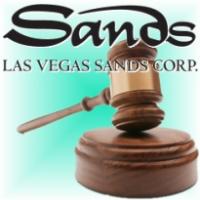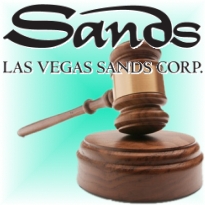 Withholding evidence, particularly when a case is filed against you, is a pretty serious matter. Las Vegas Sands found that out the hard way after a Nevada state judge ruled that the company had deceived the courts in an attempt to stall a lawsuit filed by former Sands China CEO Steve Jacobs.
Withholding evidence, particularly when a case is filed against you, is a pretty serious matter. Las Vegas Sands found that out the hard way after a Nevada state judge ruled that the company had deceived the courts in an attempt to stall a lawsuit filed by former Sands China CEO Steve Jacobs.
District Court Judge Elizabeth Gonzalez fined Las Vegas $25,000 and, more importantly, abridged the casino company its right to object in a fight over key evidence. The decision comes as a huge victory for Jacobs, who filed a wrongful termination suit stemming from Sands’ decision to fire him over his reluctance to do more business with Macau’s junket operators, as Adelson allegedly wanted. Jacobs also alleges that Adelson wanted him to snoop around for any kind of dirt on senior Macau officials that the could use in the future as leverage if there are future regulations that won’t sit well with the company. When Jacobs refused, he was abruptly fired in July 2010 and more embarrassingly, escorted by security to the door of the casino.
But what really drew the ire of Judge Gonzales was Las Vegas Sands’ apparent attempt at deception after its attorneys accidentally let it slip that documents relating to the case that they’d claimed couldn’t be removed from Macau due to the region’s Personal Data Protection Act was actually already in the US since 2010. Needless to say, Judge Gonzales wasn’t too thrilled about this embarrassing revelation.
“The transferred data had already been copied; the copy removed from Macau; and reviewed in Las Vegas by representatives of Las Vegas Sands,” Judge Gonzalez wrote in the ruling.
“Sands’ repeated inaccurate statements over several months showed an intention to deceive the court, and the purpose appeared to be to stall the discovery process. The Defendants concealed the existence of the transferred data from this Court.”
Las Vegas Sands’ colossal mistake has given life to Jacobs’ charges and it’s only expected to get even hotter around the collar for LVS after the US Department of Justice, the Securities and Exchange Commission, and Nevada casino regulators are all done with their own investigations.
